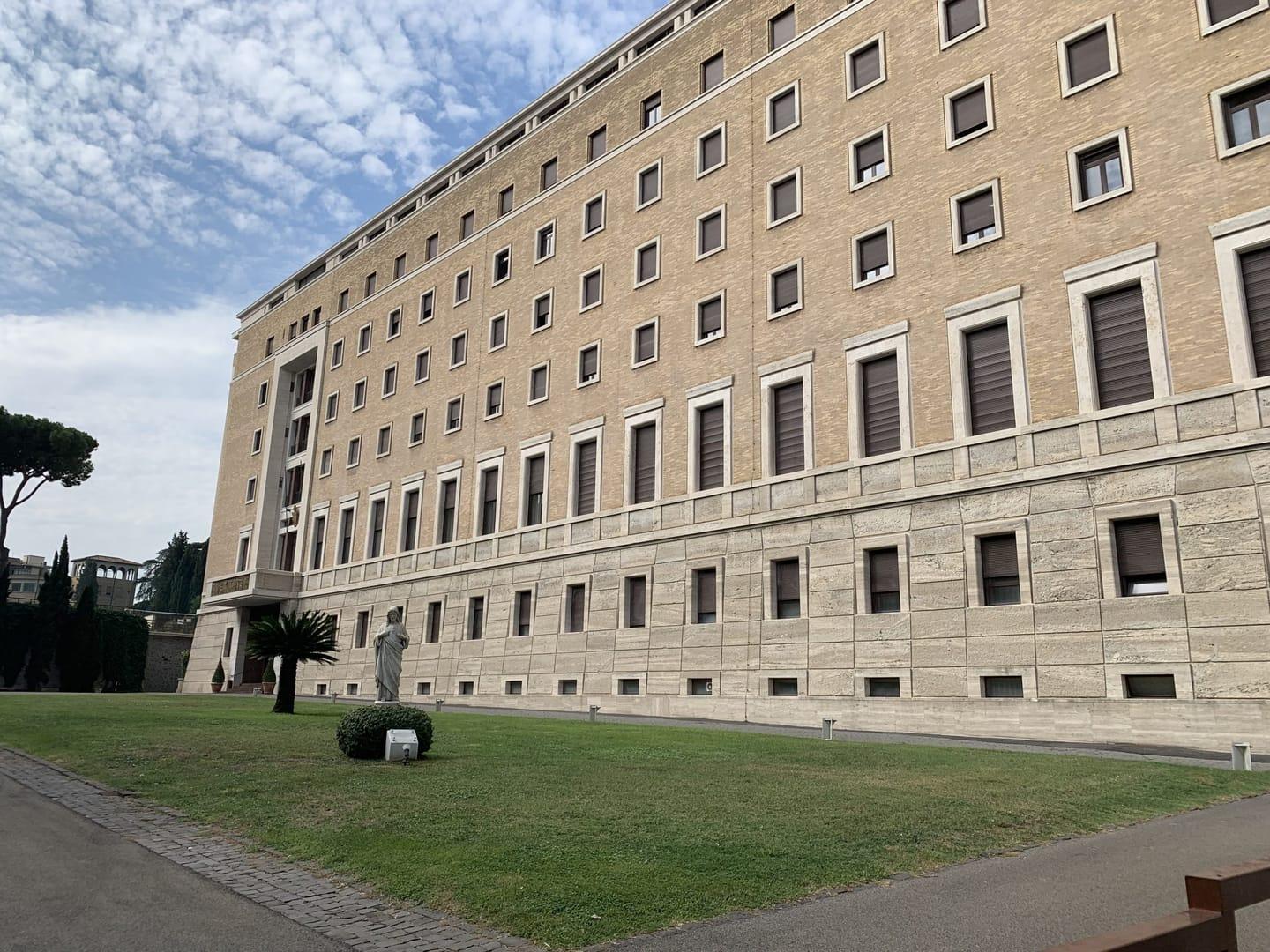ROME – On Wednesday the Vatican announced that Monsignor Thomas Powers would take over as the new rector of the Pontifical North American College, the Rome-based seminary for young men pursuing degrees at pontifical universities during their studies for the priesthood.
Powers, a graduate of the so-called NAC – which is run by the U.S. bishops’ conference – from the class of 1997, previously served as an official with the Vatican’s Congregation for Bishops starting in 2005, assisting the college’s formation faculty as an adjunct spiritual director.
After spending 10 years in Rome, Powers returned to his home diocese of Bridgeport, Connecticut, in 2015, where he most recently served as vicar general, as well as pastor of St. John Parish in Darien.
He replaces outgoing Father Peter Harman, a priest from Springfield, Illinois, who stepped into the role of rector at the NAC in 2016. Harman stayed on in the job beyond the usual five-year term because the selection of a successor was delayed by the coronavirus pandemic.
Powers’s term as the 24th rector of the NAC is effective as of July 1, 2022.
Founded in 1859 by Blessed Pope Pius IX, the NAC has hosted more than 5,000 priests from throughout the United States, Canada, and Australia, and is currently serving over 200 young men who are either studying for the priesthood, or who have been ordained and are pursuing graduate studies in Rome.
Pope Francis visited the NAC May 2, 2015, for a special day of prayer and reflection on the life of St. Junipero Serra, whom he canonized in Washington, D.C. during his visit to the United States in September of that year.
In a March 30 press release announcing his appointment, Powers said, “Although serving as the next Rector of the Pontifical North American College was neither something I ever expected nor sought, I am very grateful to be asked to take on this important role.”
“In accepting the appointment, I ask the Lord to grant me the grace to fulfill this role faithfully, and I entrust myself to Our Blessed Mother, Our Lady of Humility,” he said.
Harman praised his successor, calling Powers “a talented, generous, faithful, and holy priest. I cannot think of a better example and spiritual father for the men in priestly formation here at the North American College.”
Every new rector of the NAC brings something different to the job, however, Powers has a unique challenge since he is taking over at a time when Pope Francis is asking for a deep reform of clerical culture.
Since his election in March 2013, Pope Francis has been on a crusade to eradicate clericalism from the church by changing the perception that priests and Catholic ecclesial hierarchy are a distinguished and superior class, which enjoys special privileges and honors by virtue of ordination.
The abuse of power and authority that can accompany clericalism has frequently been cited as an underlying cause of the church’s global abuse scandals, including high-profile cases that erupted during Harman’s tenure, such as the notorious case of ex-cardinal and ex-priest Theodore McCarrick.
Though McCarrick did not study at the NAC – which has churned out several high-ranking U.S. church officials such as Cardinals Raymond Burke, Blase Cupich, Daniel DiNardo, Timothy Dolan, and Donald Wuerl – he stayed there often during his visits to Rome later in his ecclesial career.
In his new position, Powers is tasked with executing Francis’s vision for a humbler, more service-oriented clergy, that is less obsessed with rules and doctrinal fine print and is closer to and more involved in the lives of the people entrusted to their care.
He also steps on board in the wake of Pope Francis’s decision last year to restrict the traditional Latin Mass, which had become popular especially among young conservative clergy in the U.S.
Even though Pope Francis himself, as Bishop of Rome, has allowed the celebration of the traditional Latin Mass to continue at certain parishes that were already attached to the Old Rite, these Masses and training for them has been suspended at the NAC.
Harman issued a memorandum last August in which he explained that the NAC would no longer provide training for the traditional Latin Mass or allow the celebration of it on campus on grounds that according to Pope Francis’s decree, permission to celebrate the so-called “Old Rite” has to be given by a priest’s diocesan bishop, but this permission is “not sufficient” outside of a priest’s respective diocese.
Prior to coming to Rome for his job at the Congregation for Bishops in 2005, Powers earned a degree in economics from the University of Notre Dame and served as a financial consultant with Andersen Consulting in New York.
In 1991, he spent a year as a volunteer in Puerto Rico though Notre Dame’s Center for Social Concerns, and subsequently entered St. John Fisher Seminary in Connecticut to pursue priestly studies. He transitioned to the NAC in 1993, obtaining a bachelor’s degree in sacred theology from the Pontifical Gregorian University and a licentiate degree in sacred theology from the John Paul II Pontifical Institute for Marriage and Family.
He was ordained May 24, 1997, and served in various assignments in his home diocese before being called to the Vatican in 2005.
Remarking about Powers’s appointment as rector for the NAC, Bridgeport Bishop Frank Caggiano said, “In my opinion, they could not have made a better choice. While we will miss him terribly in the Diocese of Bridgeport – both as Vicar General and as Pastor – I am pleased for the College.”
Bishop Robert Deeley, Chairman of the Board of Governors of the College and Bishop of Portland, Maine, noted, Powers is “extremely well-suited to serve as our next rector, given his extensive experience in seminary formation, his many pastoral skills, and his prior work in church governance and administration.”
“We are very grateful for his acceptance of our nomination,” he said.
Follow Elise Ann Allen on Twitter: @eliseannallen










